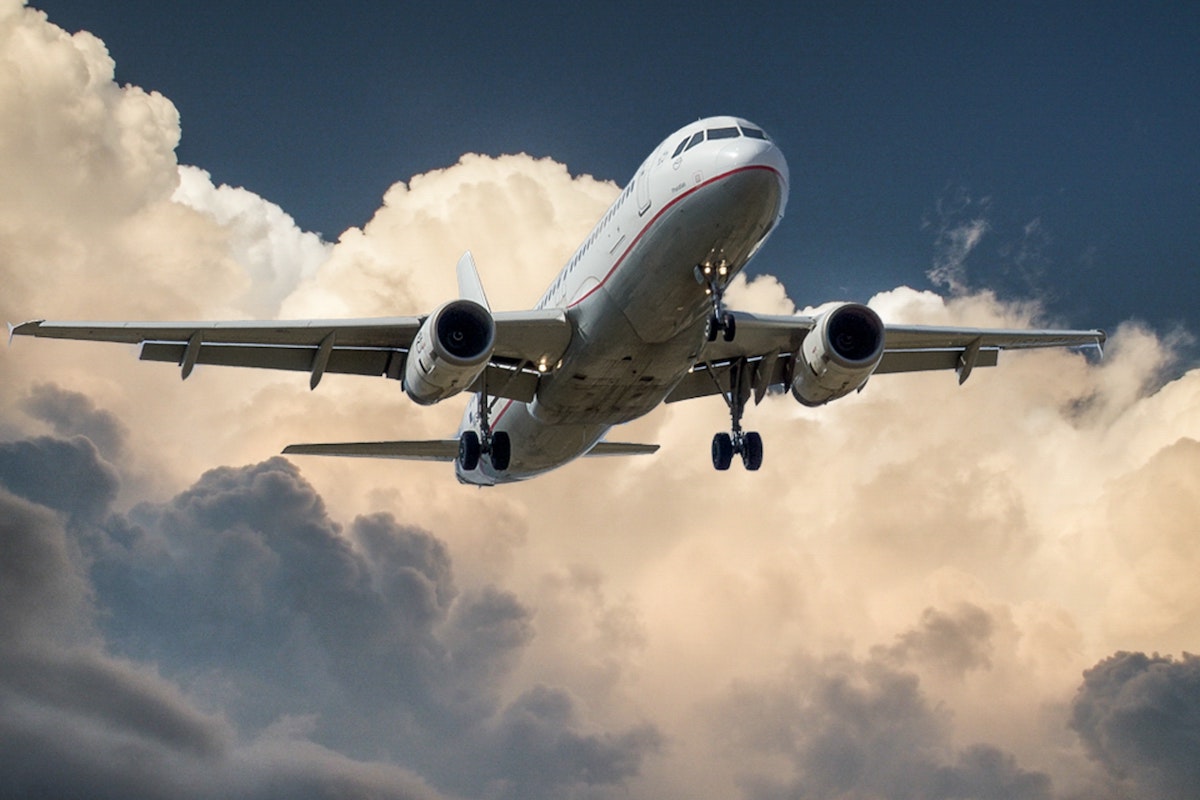Add Delta Airlines flights to the neverending list of shortages.
The major airline announced it was cutting two more cities from its flight schedule. The move brings the total number of cities Delta has cut from its schedule since the pandemic began to 17.
The latest two cities to learn they were grounded from Delta flights: La Crosse, Wisconsin, and State College, Pennsylvania.

Delta Airlines will exit these two markets as of June 5, the company announced in April. We’re sorry if you were thinking of flying Delta to see a Penn State football game this fall. As of April, Delta was still flying from LaGuardia in New York to University Park Airport (close to State College) per day. Once daily, Delta would fly from Minneapolis-Saint Paul International and La Crosse Regional Airport.
That’ll stop in June, at least for now. The company says it’s temporary.
“Delta will temporarily suspend Delta Connection service in La Crosse, Wis. (LSE), and State College, Penn. (SCE),” carrier spokesperson Drake Castañeda shared with The Points Guy. “Delta continues to evaluate the regional market, monitoring regional carrier pilot availability and customer demand. Affected customers will be proactively notified by Delta and re-accommodated accordingly. We apologize to customers for any inconvenience these changes may cause.”
However, again, these two cities are merely the latest cuts to Delta flights. The other 15 cities cut during the pandemic have not returned to the schedule. The complete list of cities Delta flights no longer take off from is as follows:
- Akron, Ohio
- Cody, Wyo.
- Durango, Colo.
- Erie, Pa.
- Flint, Mich.
- Fort Smith, Ark.
- Grand Junction, Colo.
- La Crosse, Wis.
- Lincoln, Neb.
- Manchester, N.H.
- New Bern, N.C.
- Newburgh, N.Y.
- Newport News, Va.
- Peoria, Ill.
- Santa Barbara, Calif.
- State College, Pa.
- Wilkes-Barre, Pa.
It’s been a rough few years for airlines, which have experienced everything many businesses and people around the country have: Pandemic-related start, stops, and financial hardships.
To try to stem the tide, the airline gave a new contract its seal of approval. Workers will get 35% raises during the next four years, and the company plans to invest, recruit, and train new pilots and backfill roles that about 17,000 employees left vacant during the COVID-19 pandemic. No, they didn’t just quiet quit.
Some retired early, and others took buyouts as airlines tried to stem the economic tide caused by reduced traffic. Now, Delta is trying to reverse it.
However, these investments take time. Delta usually has pilots start their careers in smaller markets before graduating to large ones (if it’s mutually beneficial to Delta and the employee).
As Delta gets the human power — and trains them — the airline needed to reduce the number of flights offered in regional markets. Hence, another round of cuts.
Delta isn’t the only company having issues. The Federal Aviation Administration recently asked airlines to reduce their flight numbers at some of the nation’s top airports by as much as 10% because of a shortage of air-traffic controllers. It’s for the same reason: Staff shortages, primarily due to the pandemic, triggered tons of delays and cancellations In 2022. The hope is cutting back on flight offerings reduces those issues.
TL;DR: Pandemic-era souvenirs are far less fun than postcards.
Editors' Recommendations
- Visiting the Grand Canyon? Your complete guide for a Northern Arizona road trip
- Does air travel stress you out? You’ll love these changes to the United Airlines app
- The U.S. airports with the shortest (and longest) security wait times
- Not sure how to get over jet lag? A new report reveals Qantas has cracked the code
- Grab your mask and fins, and head to the best snorkeling spots in the U.S.




